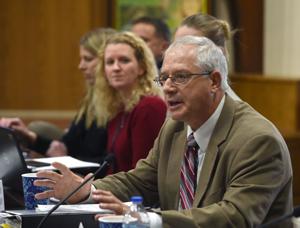
President Bola Tinubu is ambitious. He wants to grow Nigeria economy to a $1 trillion economy by GDP in 2030. That’s just five years away.
At the moment, Nigeria’s GDP has tanked to $362.8 billion by 2023 World Bank index. Slipping behind Egypt ($395.

9 billion) and South Africa ($377.8 bn), the once-upon-a time Africa’s largest economy has a lot to do to drag itself out of the stasis and Tinubu has been full of fervour and hope. Anywhere and everywhere, the President chants his determination to get the flab out just so the belly-up economy can get on its bike up the hill.
It’s actually a ride uphill. Tinubu will need to pull all the levers and pulleys of local production to build as much as a momentum. But besides local production of goods, he will need some innovations in the service sector.
He will need to skirt around the contours of digital currency, otherwise known as Cryptocurrency. Cryptocurrency is the playground of the young, smart innovators and investors. Initially resisted globally, it has braved its way into the discourse menu of world leaders, investors, techies, fintech whizzes, and an amalgam of digital enthusiasts.
Ahead of his inauguration as 47 th President of the United States, Donald Trump was emphatic on his push to widen the frontiers of cryptocurrency in the US economy. Doing so is part of his innovative strategies to get the US economy not only on a steady rebound from post-COVID global economic distress, but also to keep it outside the loop of recession amid sundry headwinds. Trump has stepped into the Oval Office with a profound pro-Crypto disposition which many predict will create a beneficial policy ecosystem that could elevate digital assets worldwide in a manner never before witnessed.
Tinubu must make equal push to deepen the cryptocurrency space. Nigeria’s appreciation of cryptocurrency has been nervous. The Central Bank of Nigeria, CBN, at the twilight of 2023 lifted a restriction on cryptocurrency third party transactions.
Early last year, it followed it up with fresh guidelines to banks on how to relate with crypto operators. In 2021, the CBN came under a maelstrom of censure for prohibiting cryptocurrency-related transactions in the country. The 2021 directive to prohibit all cryptocurrency transactions was not new.
It was a reaffirmation of a 2017 directive to financial institutions to block cryptocurrency accounts. CBN argued that Cryptocurrency transactions were shrouded in opacity which lent them to sundry illegal activities including money laundering, terrorism financing, purchase of small arms and light weapons, and tax evasion. The CBN was right.
But throwing away the baby with the bathe water is not smart economics. Cryptocurrency is not real money like the naira or the dollar and it’s used as agreed means of transaction between parties, a modern day medium of transaction akin to the old ‘trade by barter.’ It’s a floating, amorphous currency, not traceable to any country in terms of ownership.
America owns the dollar. Nigeria owns the naira just as other nations proudly lay claim to their respective currencies. In the event of excess dollar liquidity, the US Federal Reserve can pull the strings to mop up some dollar in the system, same way CBN has capacity and control to mop up excess naira floating in the system.
Not so with cryptocurrency. Its ownership is not defined. Transactions around cryptocurrency are shadowy, unobtrusive and largely without regulation.
On the face of it, digital currency transactions offer some niceties. It rides on the wings of technology, the internet. The currency is domiciled in digital form hence immune to dirt and filth and all the other physical abuses including wear and tear that afflict real currencies.
In its early years, you could not convert it to real cash. But the versatility and innovation around digital currency has made it possible for users to convert to agreed currency and at an agreed rate. Plus, it’s the fancy of a young, upwardly mobile generation questing for innovation and adventure.
It has expanded the global economy ecosystem, creating jobs, wealth and a new frontier of tech-driven whizzes. The initial global revulsion for Crypto has thawed significantly with many countries now recognizing its versatility and undeniable power to play a key role in building buffers against a growing hostile global economic climate. Tinubu can leverage Crypto to bolster the nation’s economy.
There are, already, metrics that give Nigeria comparative advantage in the crypto ecosystem. In the latest statistics for crypto adoption by Chainanalysis , the global Crypto analytics body, Nigeria ranks high. Titled 2024 Global Crypto Adoption Index Top 20 , Nigeria ranked second out of the top 20 countries in the overall crypto adoption table, only next to India.
Indonesia, United States, Vietnam, Ukraine, Russia, Philippines, Pakistan, Brazil, Turkey, United Kingdom, and others all queued behind Nigeria in the adoption index. Here, there is a pattern. The Top 20 countries have a strong IT culture with their young population showing high computer skills.
Nigeria’s high rank is a testament to the country’s growing computer literacy, especially among persons of the younger generation. This is already a head-start for any nation. Granted, Crypto has been used for money laundering, terror financing and other illicit financial transactions.
But, so have traditional financial institutions been used to perpetrate all the afore-named crimes. You don’t shut a bank because it was involved in money laundering. Otherwise, no bank will still be standing.
The challenge is for CBN to creatively, using technology, monitor activities of the crypto buffs and in liaison with the Federal Inland Revenue Service (FIRS), to ensure that it drags them into the tax net as is being done in other countries with high crypto adoption. At birth, Crypto was evasive and fuzzy. But it no longer is.
It’s tech-driven and advances in tech have helped to ‘keep an eye’ on the vibrant, sometimes volatile space. There is big money movement in the crypto space that should be of interest to the tax man. President Tinubu and his economic team should look into this space to put more cash in the tax vault.
It’s his bell-ringer as he rallies his team to build a $1 trillion economy in the coming years..















